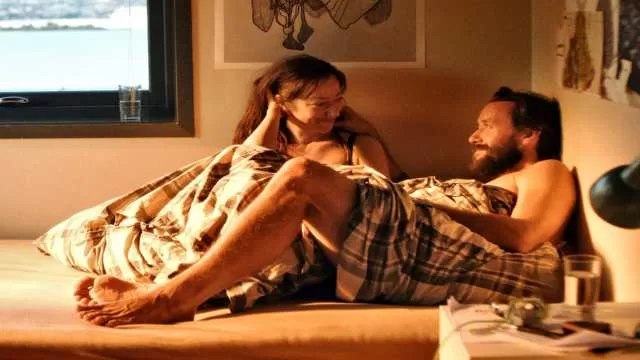The Venice Film Festival has seen a resurgence of erotic and sexually charged films, showcasing a diverse range of perspectives and approaches to on-screen intimacy. Gone are the days of shock value and taboo-breaking; the new wave of sexy cinema is more about exploring the complexities of human sexuality in a thoughtful, therapeutic manner.
Directors like Halina Reijn, Alfonso Cuarón, and Luca Guadagnino have brought their unique visions to the festival, blending elements of the classic erotic thriller with more nuanced, character-driven narratives. Reijn’s “Babygirl,” for instance, takes the “Fatal Attraction” plot and gives it a sex-positive, feminist spin, while Cuarón’s “Disclaimer” uses erotic tropes to delve into deeper mysteries.
Guadagnino’s “Queer,” an adaptation of William S. Burroughs’ autobiographical novel, depicts the intense, obsessive attraction between two men in 1950s Mexico, but the focus is less on sensual satisfaction and more on the characters’ struggle to find a language to define their love.
The goal of these new erotic films is not to shock or titillate, but to explore the complexities of human sexuality in a more thoughtful, empathetic manner. As Reijn explains, “As a consumer, sometimes I just want to see a hot movie, a sexy movie, with hot people in scenes that turn me on a little bit.” But the filmmakers are also using sex as a means to delve deeper into the human experience.
One of the most radical approaches can be seen in Dag Johan Haugerud’s “Love,” the second film in his “Sex/Love/Dreams” trilogy. Instead of depicting sex on screen, Haugerud’s characters engage in frank, intimate discussions about their sexual experiences and desires, treating sexuality as an important, significant part of life that deserves careful, serious attention.
“I find it hard to watch sex scenes in films because I question the function of it,” says Haugerud. “People have sex in different ways and you can’t ask [the actors] to bring his or her sexual experience to the shooting because that’s so private, so they always tend to have what you would call ‘film sex,’ it’s sex that doesn’t feel very truthful or realistic.”
The new wave of erotic cinema at the Venice Film Festival represents a shift away from the shock value and sensationalism of the past, towards a more nuanced, empathetic exploration of human sexuality. These filmmakers are not interested in titillation or taboo-breaking; instead, they are using sex as a lens to delve deeper into the complexities of the human experience, offering a more therapeutic and enlightening approach to on-screen intimacy.

